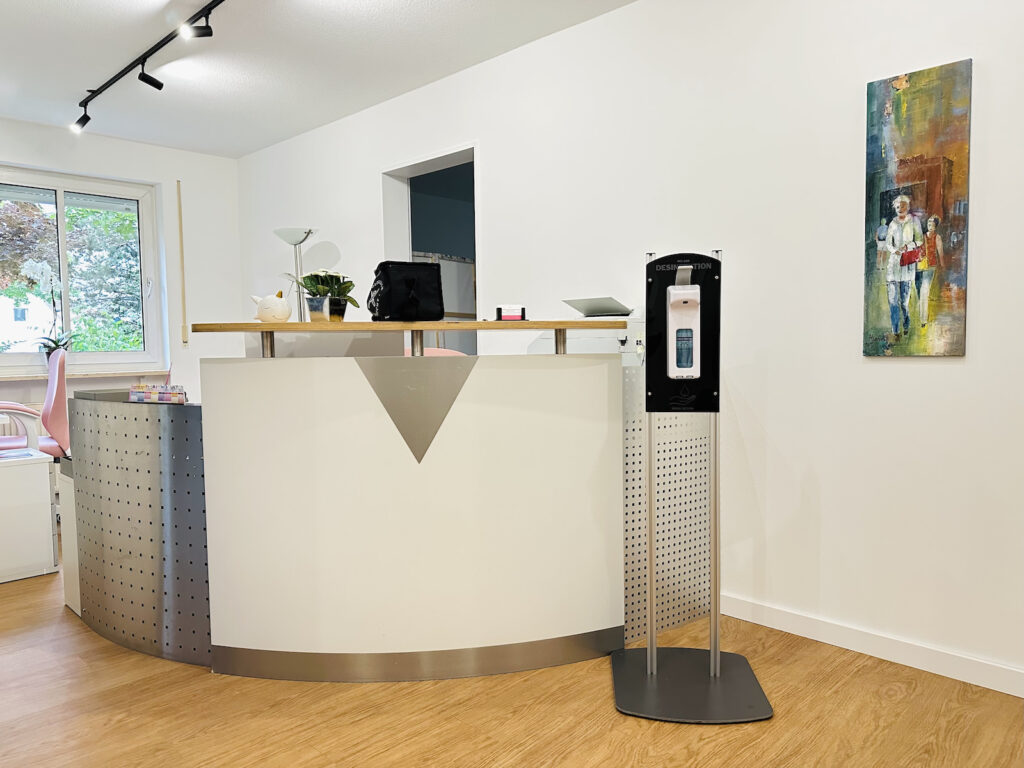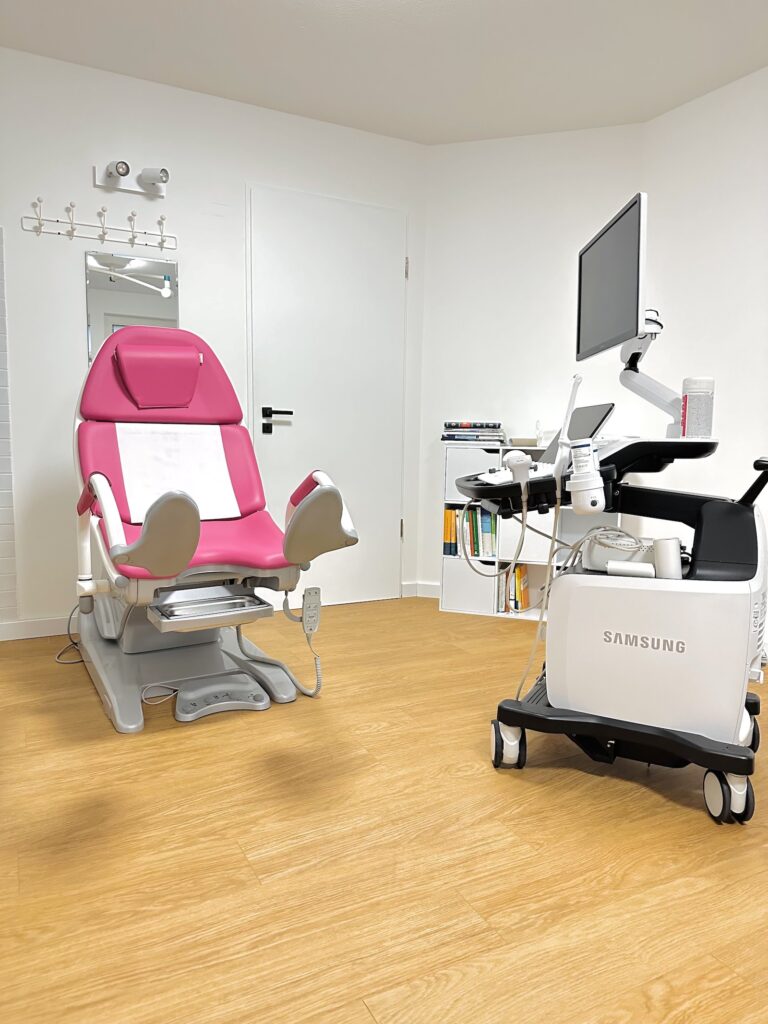Pregnancy & Obstetrics
With us, you and your baby are in good hands. From the first confirmation of your pregnancy to postnatal care, we offer comprehensive, individual care and medical attention tailored to your needs.
Pregnancy and birth are unique and profound life events.
During this exciting time, you need not only expert medical care, but also understanding support and comprehensive advice. Our gynaecology practice offers just that.
We offer comprehensive care that is tailored to your individual needs and wishes. From confirming your pregnancy to regular check-ups, screening, ultrasound imaging, birth preparation and postnatal care, we will accompany you and your baby through every stage of this wonderful journey.


Medical care in our practice
Our dedicated and experienced team provides state-of-the-art medical care in a warm and welcoming environment. Our practice is equipped with the latest technology and we work closely with local hospitals and obstetric facilities to ensure that you and your baby receive the best possible care.
We understand that every pregnancy and every birth is unique and we strive to create a safe and positive space where you feel heard, understood and well cared for.
Accompanying care from pregnancy to birth
We place a special emphasis on emotional care. Pregnancy and birth are not only physical processes, but also profound emotional experiences. Ms Grewal and the whole team take the time to discuss your fears, worries and questions and help you make decisions that feel best for you. We strongly believe that knowledge and understanding can reduce fear and want to provide you with the best possible information and support on your journey.
At our practice, you also have access to a range of complementary services and specialists, such as nutritional counselling, physiotherapy and psychological support, to ensure you are well looked after throughout your pregnancy and beyond.
Your health and well-being, as well as that of your baby, is our primary goal. We look forward to accompanying you in this exciting phase of your life and providing you with the best possible care.

Frequently asked questions
Our practice focuses on your health and well-being.

What should I do if I think I am pregnant?
First of all, you should take a pregnancy test. If this is positive, please make an appointment at our practice to confirm the pregnancy and discuss your further care plan.
How often should I attend appointments during my pregnancy?
As a rule, you should come for a check-up about every four weeks in the first two trimesters, every fortnight in the third trimester and weekly from the 36th week of pregnancy.
Is it safe to exercise during pregnancy?
Yes, regular physical activity can help you feel better during pregnancy and prepare for birth. However, it is important to talk to your doctor before starting a new exercise programme.
What kind of diet should I follow during my pregnancy?
A balanced diet is especially important during pregnancy. It should include a variety of foods from all food groups to ensure that you and your baby get all the nutrients you need.
Is it normal to experience emotional fluctuations during pregnancy?
Yes, hormonal changes can cause you to experience stronger emotions and mood swings during pregnancy. If these feelings become overwhelming, please talk to us about it.
What should I bring to the antenatal class?
You should bring comfortable clothes, water and note material for any questions or information you want to jot down.
What are the signs of the onset of labour?
Signs of labour may include regular or increasing abdominal cramps, back pain, rupture of the waters or a discharge of blood. If you think you are in labour, please contact us immediately.
What is a birth plan and should I make one?
A birth plan is a document that describes your wishes and ideas for the birth. It can be helpful to make sure that you and your medical team are on the same page. We can help you create one that suits your needs and wishes.
Can I take medication during pregnancy?
Some medicines are safe during pregnancy, others are not. Always talk to your doctor before taking a new medicine.
What happens during postnatal care?
Aftercare includes all visits and examinations that take place in the weeks and months following the birth. These appointments are to monitor your and your baby's health, clarify any questions you may have and offer support during this new phase of life. It is also a good opportunity to talk about contraceptive methods if you don't want to get pregnant again right away.